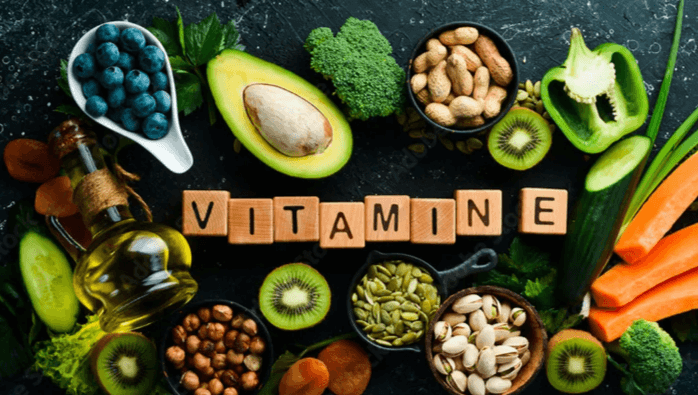wellhealthorganic.com:vitamin-e-health-benefits-and-nutritional-sources

Introduction
Vitamin E is a crucial nutrient that plays a significant role in maintaining various bodily functions. Renowned for its antioxidant properties, vitamin E helps protect cells from damage, supports immune function, and promotes skin health. This article delves into the health benefits of vitamin E and highlights the best nutritional sources to ensure you get enough of this vital nutrient in your diet.
Understanding Vitamin E
Vitamin E is a group of eight fat-soluble compounds, including four tocopherols and four tocotrienols. Each type has distinct properties, but alpha-tocopherol is the most biologically active form in humans. It acts as a powerful antioxidant, neutralizing free radicals that can damage cells and contribute to aging and various diseases.
Health Benefits of Vitamin E
Vitamin E offers a wide range of health benefits, making it essential for overall well-being. Here are some key advantages:
Antioxidant Properties of Vitamin E
Vitamin E’s primary role is as an antioxidant. It helps protect cells from oxidative stress, which can lead to chronic diseases such as cancer and cardiovascular issues. By neutralizing free radicals, vitamin E aids in maintaining cellular health.
Vitamin E and Immune Function
Vitamin E plays a crucial role in enhancing the body’s immune response. It helps in the production of immune cells, enabling the body to fight off infections more effectively. A robust immune system is vital for overall health and longevity.
Skin Health and Vitamin E
Vitamin E is well-known for its skin benefits. It supports skin health by reducing inflammation, protecting against UV damage, and promoting wound healing. Many skincare products contain vitamin E due to its moisturizing and anti-aging properties.
Vitamin E and Eye Health
Studies suggest that vitamin E may help reduce the risk of age-related macular degeneration (AMD), a leading cause of blindness in older adults. Its antioxidant properties protect eye cells from damage, maintaining good vision.
Read also thesparkshop.in:product/batman-style-wireless-bt-earbuds
Cardiovascular Benefits of Vitamin E
Vitamin E contributes to heart health by preventing the oxidation of LDL cholesterol, which is a risk factor for atherosclerosis. Additionally, it helps improve blood vessel function and reduces inflammation, supporting overall cardiovascular health.
Vitamin E and Cognitive Function
Research indicates that vitamin E may play a role in protecting against cognitive decline and neurodegenerative diseases such as Alzheimer’s. Its antioxidant properties help protect brain cells from damage and maintain cognitive function.
Nutritional Sources of Vitamin E
To reap the health benefits of vitamin E, it’s essential to include its rich sources in your diet. Here are some of the best foods high in vitamin E:
Nuts and Seeds
Nuts and seeds are excellent sources of vitamin E. Almonds, sunflower seeds, and hazelnuts are particularly high in this nutrient. Including these in your diet can help meet your daily vitamin E requirements.
Vegetable Oils
Vegetable oils, such as sunflower oil, safflower oil, and wheat germ oil, are rich in vitamin E. Using these oils in cooking or salad dressings can significantly boost your vitamin E intake.
Leafy Green Vegetables
Leafy greens like spinach, kale, and Swiss chard are good sources of vitamin E. These vegetables are not only nutritious but also versatile and can be easily incorporated into various dishes.
Fortified Foods
Many foods, such as cereals and margarine, are fortified with vitamin E. These can be convenient options to ensure adequate intake, especially for those with dietary restrictions.
Fruits
Certain fruits like avocados, kiwis, and mangos contain moderate amounts of vitamin E. Including a variety of fruits in your diet can contribute to your overall nutrient intake.
Read also wellhealthorganic.com:lemon-juice-know-home-remedies-easily-remove-dark-spots
Whole Grains
Whole grains, such as wheat germ and whole wheat products, provide a good amount of vitamin E. Incorporating whole grains into your meals can enhance your dietary vitamin E.
Vitamin E Supplements
For those who may have difficulty obtaining sufficient vitamin E from food sources alone, supplements can be an option. However, it’s essential to consult with a healthcare provider before starting any supplementation.
Daily Recommended Intake of Vitamin E
The recommended daily intake of vitamin E varies by age, gender, and life stage. Generally, adult men and women should aim for 15 mg (22.4 IU) per day. Pregnant and breastfeeding women may require slightly higher amounts. It’s important to follow guidelines to avoid deficiencies or excessive intake.
Vitamin E Deficiency
Vitamin E deficiency is rare but can occur in individuals with certain medical conditions or genetic disorders. Symptoms may include muscle weakness, impaired vision, and immune dysfunction. Ensuring a balanced diet with sufficient vitamin E can prevent deficiency.
Potential Risks and Side Effects
While vitamin E is generally safe, excessive intake from supplements can lead to adverse effects, such as increased risk of bleeding or hemorrhagic stroke. It’s crucial to stick to recommended doses and seek medical advice if considering high-dose supplements.
Incorporating Vitamin E into Your Diet
Incorporating vitamin E-rich foods into your diet can be simple and delicious. Here are some tips:
- Add nuts and seeds to your breakfast cereals or yogurt.
- Use vegetable oils in cooking or as salad dressings.
- Include leafy greens in your salads, smoothies, or as side dishes.
- Opt for whole grain bread and cereals.
- Enjoy fruits like avocados and kiwis as snacks or in salads.
Cooking Tips to Preserve Vitamin E
Vitamin E can be sensitive to heat and light, so proper storage and cooking methods are essential:
- Store oils in dark, cool places to preserve their nutrient content.
- Avoid high-heat cooking methods that can degrade vitamin E, such as deep frying.
- Incorporate raw or lightly cooked vegetables to retain more vitamin E.
Conclusion
Vitamin E is a vital nutrient with numerous health benefits, from antioxidant protection to supporting skin and immune health. By including vitamin E-rich foods in your diet, you can ensure adequate intake and promote overall well-being. Always aim for a balanced diet and consult with healthcare providers when considering supplements to maintain optimal health.
FAQs
What are the best sources of vitamin E? Nuts, seeds, vegetable oils, leafy green vegetables, fortified foods, fruits, and whole grains are some of the best sources of vitamin E.
How does vitamin E benefit the skin? Vitamin E benefits the skin by reducing inflammation, protecting against UV damage, and promoting wound healing. It’s commonly used in skincare products for its moisturizing and anti-aging properties.
Can vitamin E improve immune function? Yes, vitamin E plays a crucial role in enhancing the body’s immune response by aiding in the production of immune cells, which helps the body fight off infections more effectively.
What is the recommended daily intake of vitamin E? The recommended daily intake of vitamin E for adult men and women is 15 mg (22.4 IU). Pregnant and breastfeeding women may require slightly higher amounts.
Are there any risks associated with taking vitamin E supplements? Excessive intake of vitamin E supplements can lead to adverse effects, such as an increased risk of bleeding or hemorrhagic stroke. It’s important to stick to recommended doses and seek medical advice before starting high-dose supplements.
Can vitamin E help with cognitive function? Research suggests that vitamin E may protect against cognitive decline and neurodegenerative diseases like Alzheimer’s by protecting brain cells from damage.



